You can’t have Chinatown without Chinese food. In Vancouver’s historic neighbourhood, there’s the tourist, looking for a bite of culture. There are politicians like Justin Trudeau, looking for a place to campaign. There’s the immigrant senior, looking for familiar food. There’s the resident from the Downtown Eastside, looking for something hot, affordable and a place to sit. But in a pandemic, how are Chinatown’s eateries faring? After our visit to Gain Wah, our series continues with Floata.
...
“Last year, Justin Trudeau came here for Chinese New Year! And now, we’re losing money whether we close or we open,” said Andre Ruan with a sigh. “These are very difficult times.”
There were always massive crowds at Floata, Canada’s largest Chinese restaurant: fundraisers, weddings, tour groups and parties by various Chinatown societies all brought people to Vancouver’s historic Chinatown.
There’s dim sum, of course, but this is first and foremost a place for celebration, with an army of chefs cooking feasts of fish and fowl to serve the restaurants’ 1,000 seats across 100 tables.
But even in February, people started calling in to cancel reservations and events. With the tightening of restrictions that followed due to COVID-19s, gone were gatherings over 50, let alone Floata’s capacity of 1,000.
Take-out orders were few. Staff have been laid off. Ruan, a general manager who’s worked at Floata for 15 years, shakes his head at the challenge.
“Even I’m only working part time,” he said in Cantonese on a recent Tuesday lunchtime. “We want to make sure that everyone who’s still here has a chance to get some hours.”
It’s been 25 years since Floata opened, and it’s remained a powerful force in Vancouver’s Chinatown amidst the gentrification that’s transformed the historic community.
The immigrant seniors who live in the area have been particularly harmed, with sleek new condos, bars and eateries that serve vegan ice cream replacing the dwindling number of Chinese businesses and services that they depend on.
Floata is arguably the busiest place around, because it’s able to cater to large groups of tourists as well as locals. It’s located at the top of Chinatown Plaza, a small mall on Keefer Street home to a few mom-and-pop businesses and medical offices, but one whose parking lot boasts 1,125 stalls.
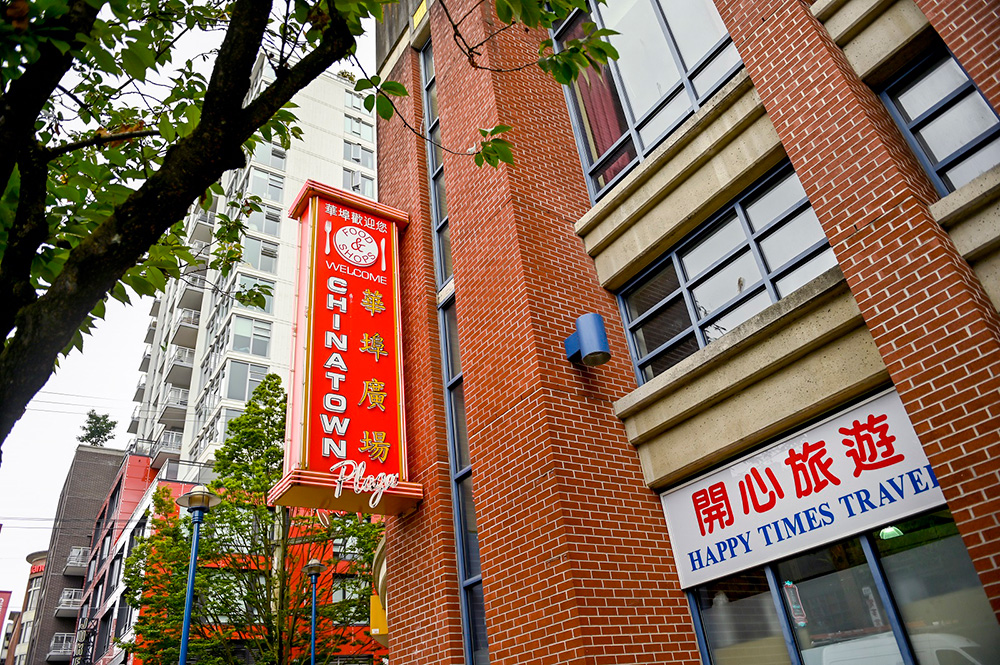
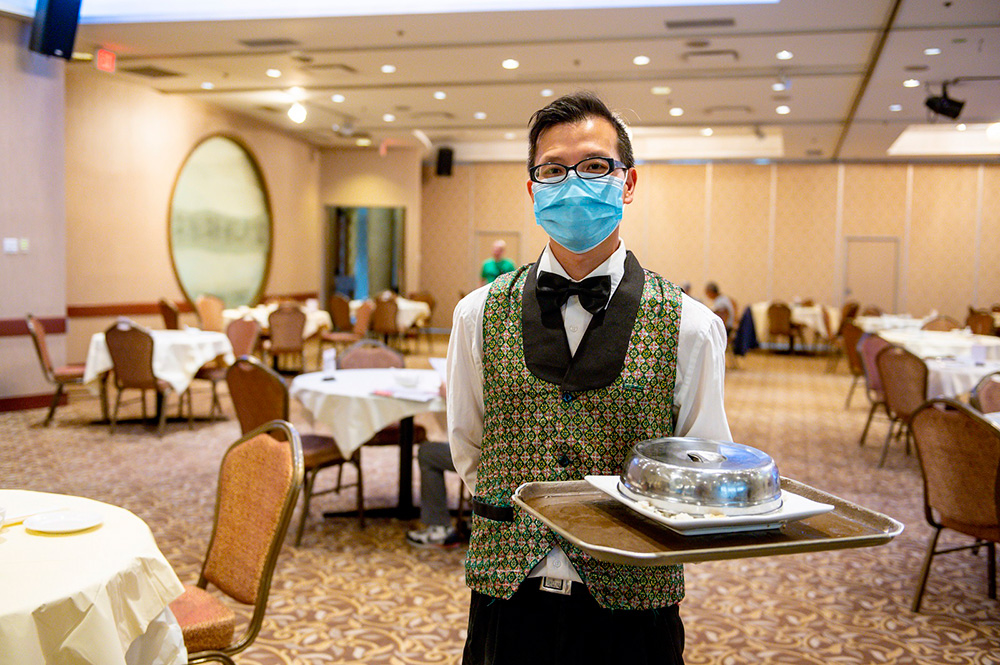
When Chinatown societies host dinners, the parking stalls are filled. Many immigrants got their starts in Canada in this neighbourhood — receiving loans, housing help or job opportunities — before moving elsewhere to raise their families. Driving here with their children and grandchildren to celebrate with old friends over multi-course meals is always an important event.
Then there are the political dinners. A quick search for “Floata” in Flickr reveals over a decade of parties. Richmond might boast a larger community of immigrant Chinese, but there’s no rival to Floata when it comes to symbolic significance.
It doesn’t matter that Chinatown is losing its Chinese-ness: there’s still no better place for politicians to flaunt a connection to the Chinese community than with Chinese people at a Chinese restaurant in a historic Chinese community.
“We’ve had everyone here,” said Ruan. “Anytime there’s an election, there’s an event here. Chinatown means a lot to them, and this is the biggest venue in Chinatown.”
Floata was a favourite spot for former Vancouver mayor Gregor Robertson and the Vision Vancouver party, where he flexed phrases in Cantonese and Mandarin. It’s also a favourite of the federal Liberal party, which brought Paul Martin, Bob Rae and Ujjal Dosanjh, among many others, to the restaurant.
Last year, Trudeau celebrated the Lunar New Year at Floata as the year of the pig began under the Chinese zodiac calendar, telling supporters the pig is “calm and compassionate.”
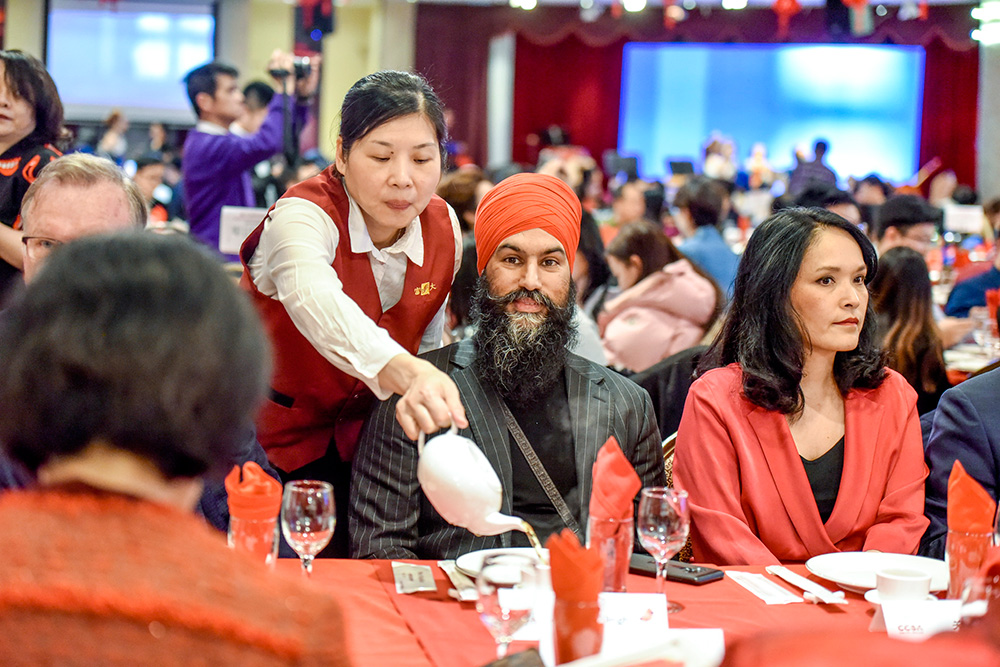
When the pandemic hit and Floata closed its dining room in March, takeout wasn’t a big business. When it reopened for dine-ins in May, lunch proved to be more popular than dinner, as “there’s just no one around in Chinatown at night,” said Ruan. Still, it’s nothing compared to the crowds that used to visit.
Those that have returned: dedicated regulars.
“They’re mostly seniors,” said Ruan. “Some of their families don’t like that they’re going out, but they say they have to support us because we’ve been there for them for so many years.”
The Cheng family is among them. Wilson, the son, just had a doctor’s appointment in Chinatown and came to Floata to eat with his parents, Jimmy and Polly, who are still managing King Rooms, an old residential hotel at the edge of the neighbourhood, after 40 years.
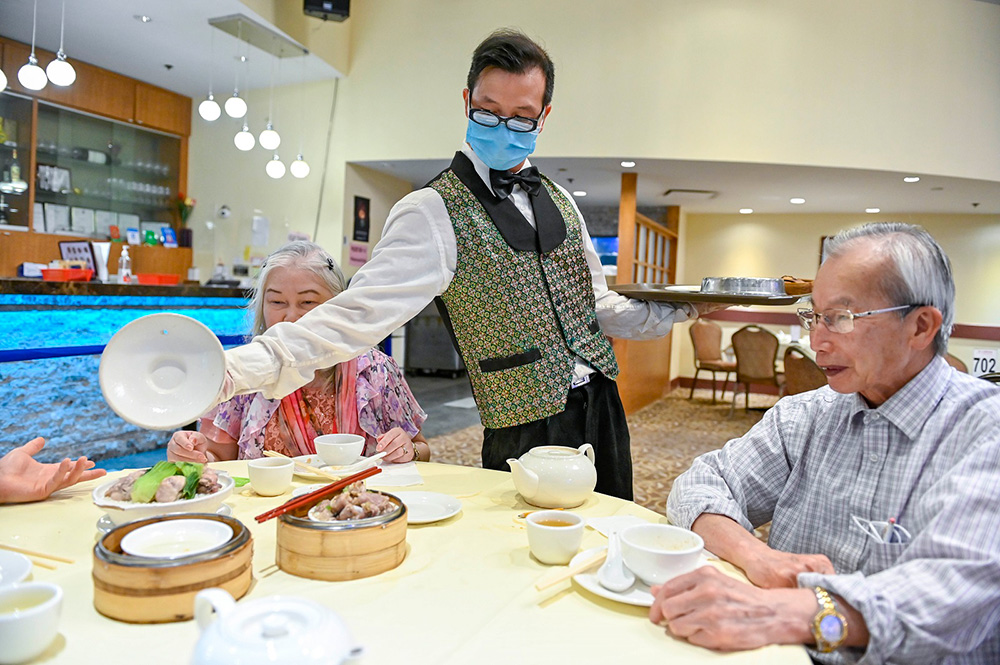
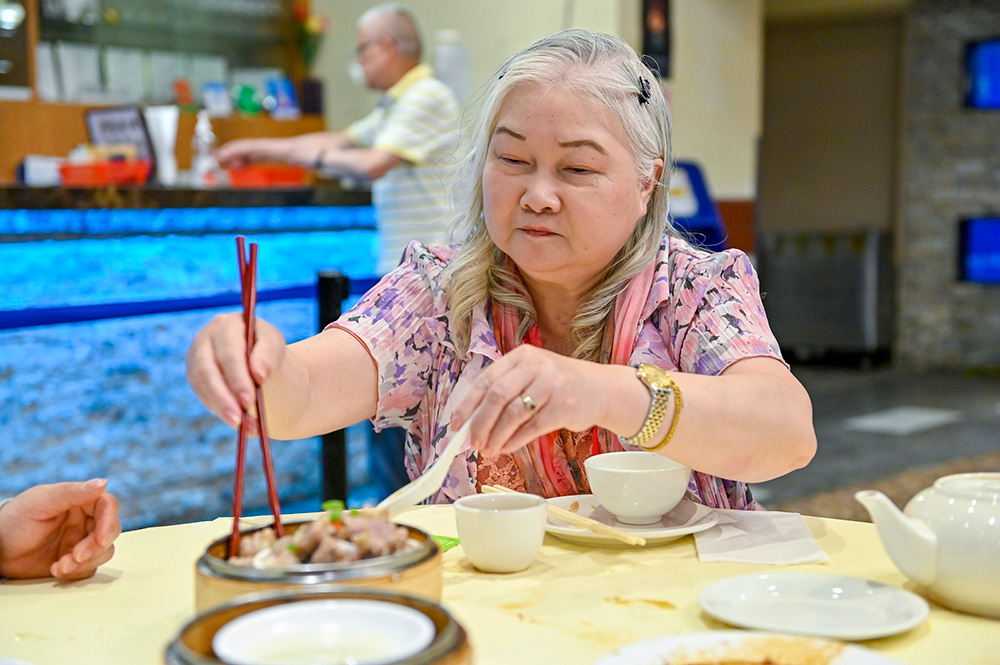
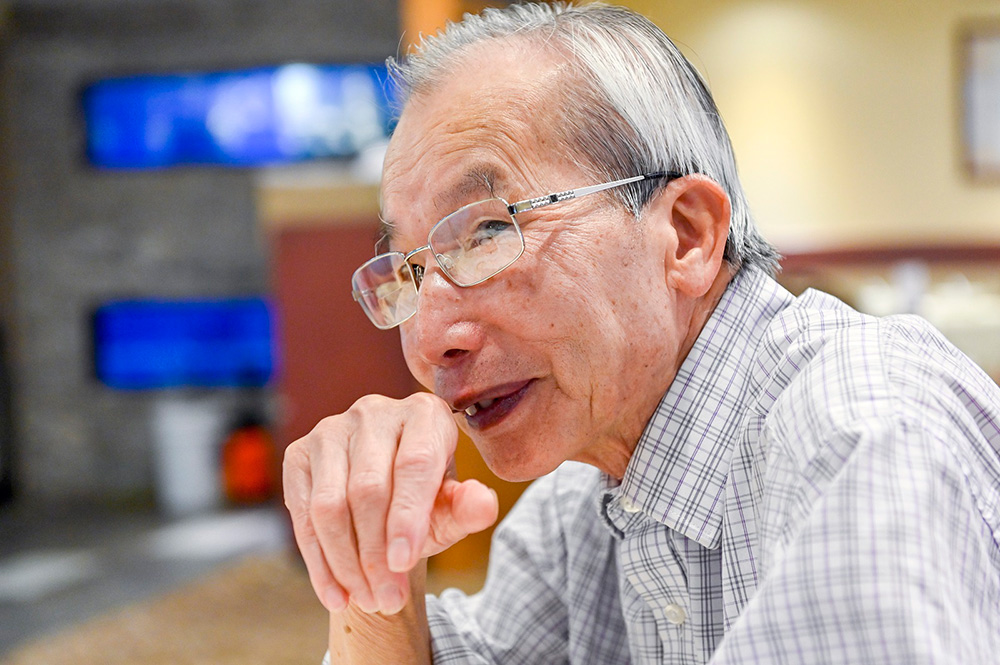
“We’re still working in this pandemic, so eating out isn’t much of a difference,” Polly said in Cantonese.
There’s nothing grilled or deep fried on their table. Instead: steamed spareribs, and chicken and bok choy cooked in a clay pot with rice.
“Nothing from the wok!” said Wilson. “You’ll live a few years longer. You can eat greasy once in a while, but if you indulge yourself, your doctor’s going to catch on and give you more meds!”
It’s not packed this Tuesday, with only about a dozen groups dining. Ruan says the restaurant’s size is one of the upsides in this health emergency, even if many seats aren’t filled.
“Guests are well-distanced,” he said. “We’ve closed half of the dining room completely and there’s still a lot of room.”
The landlords of some Chinese restaurants have received government support, but the landlord of Chinatown Plaza isn’t able to offer the same help to Floata and its other tenants.
That’s because the owner is the City of Vancouver, and municipalities aren’t eligible for the Canada Emergency Commercial Rent Assistance program, which offers tenants a 75-per-cent reduction. Mayor Kennedy Stewart has been petitioning Ottawa for a change in the rules, with no response yet.
“We’re a good tenant,” said Ruan. “We’ve been here for 25 years, and we’ve always paid the rent on time. We’re also the major anchor at this mall. If someone walks through the door, they’re more than likely coming here to eat. And with all the events that take place here, we play a very special role. Hopefully, we’ll get back on our feet soon.”
The third and final stop in our series, later this week: Business is busy as ever for Kam Wai, a frozen dim sum supplier used by many supermarkets and restaurants, and now, by people in lockdown steaming Cantonese for the first time. We visit Kam Wai in Chinatown right after the Dragonboat Festival, during which they made about 200,000 sticky rice wraps by hand. ![]()
Read more: Food





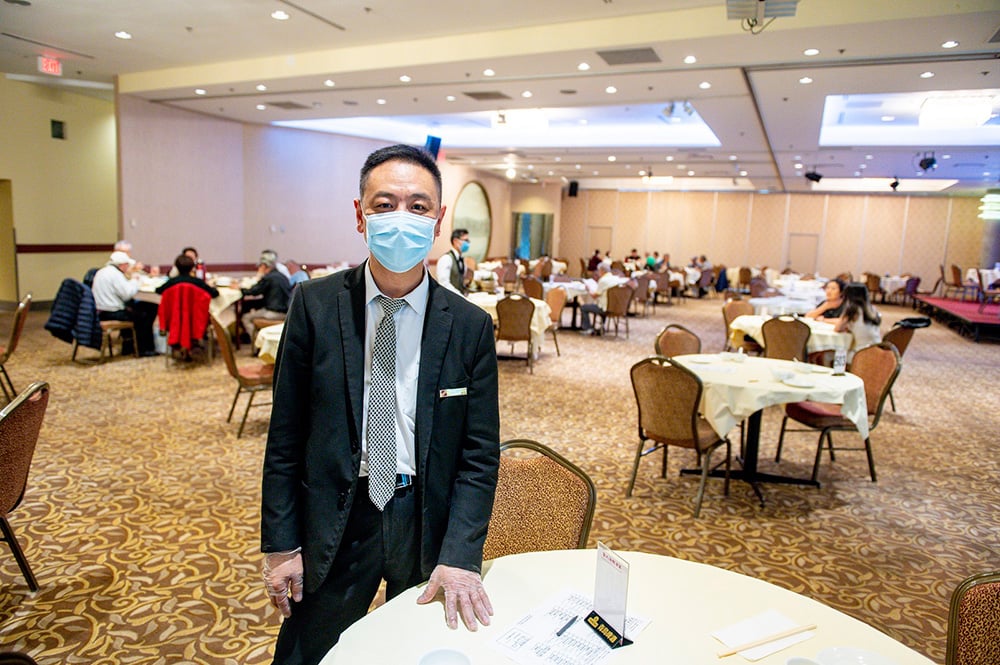












Tyee Commenting Guidelines
Comments that violate guidelines risk being deleted, and violations may result in a temporary or permanent user ban. Maintain the spirit of good conversation to stay in the discussion.
*Please note The Tyee is not a forum for spreading misinformation about COVID-19, denying its existence or minimizing its risk to public health.
Do:
Do not: